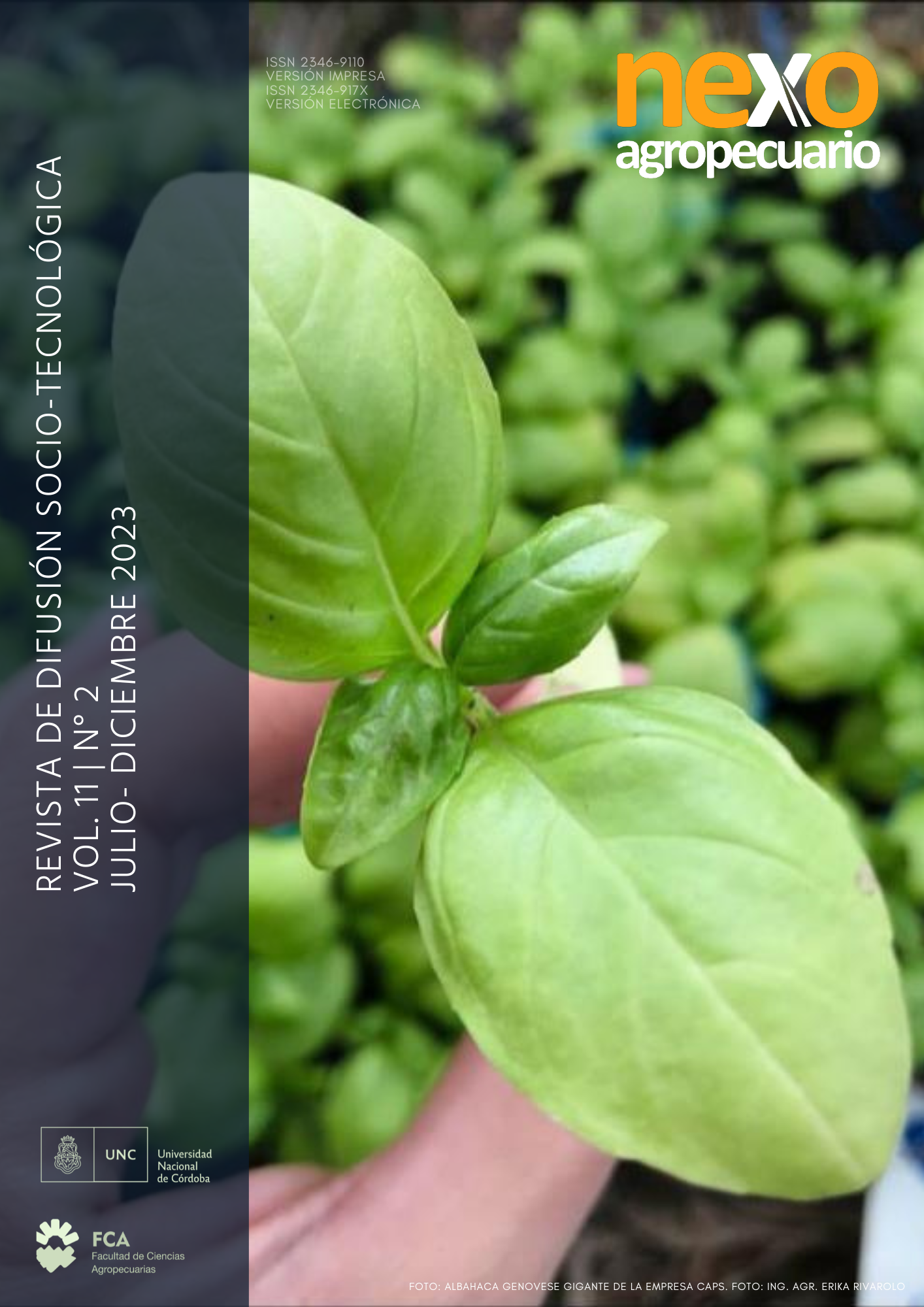EVALUATION STRATEGIES IN THE FIELD OF FOOD SCIENCE AND TECHNOLOGY
Keywords:
Food Products, Teaching and Learning, Skills, Knowledge IntegrationAbstract
A challenge that teachers of the curricular area "Fisicoquímica" (Licenciatura en Agroalimentos, FCA-UNC) face is how to present activities in such a way that the contents of the subject can be developed through concrete applications to the area of Food Science, considering both the training stage during the course of the degree as well as their performance as future professionals. In this work, practical activities carried out to evaluate Physical Chemistry concepts that represent specific applications in the field of the food industry and that encourage interaction between peers and self-assessment are reported. Based on these, it is sought to strengthen skills such as the ability to integrate and transfer knowledge, which will be important tools in their future performance as professionals. Analyzing the 2022 cohort with a total of 49 enrolled, 25 students accessed the promotion of the subject out of 37 students who initially met the requirements to achieve it. The teaching and learning processes are evaluated based on performance in the proposed activities and their feedback regarding them.
Downloads
References
Ausubel DP, Novak JD, Hanesian H. 1978. Educational Psychology: A Cognitive View (2ª ed.). New York: Holt, Rinehart and Winston, 733 p.
Crook C. 1998. Ordenadores y aprendizaje colaborativo Ministerio de Educación y Ciencia. Ediciones Morata. Madrid, 315 p.
Golombek D, Schwarzbaum P. 2020. Termodinámica del asasdo criollo. Noticias.https://www.pressreader.com/argentina/noticias/20200104/281565177686210.
Leontiev A, Luria AR, Vygotsky LS. 2004. Psicología y pedagogía, España: Akal, 320 p.
Niño Uribe AI, Pruzzo C I. 2022. Estrategias de evaluación en la universidad. In IV Jornadas sobre las Prácticas Docentes en la Universidad Pública (La Plata, 26 al 30 de septiembre de 2022).
Piaget J. 2001. Psicología y pedagogía. Barcelona: Crítica, 176 p.
Rosales Pérez F de M. 2023. Percepción de la evaluación educativa en la voz de estudiantes de educación superior. Revista Guatemalteca De Educación Superior 6(1):108–122.
Ruiz Ortega FJ. 2007. Modelos didácticos para la enseñanza de las Ciencias Naturales. Revista Latinoamericana de Estudios Educativos 3(2):41-60.
Solé I. 1996. Reforma y trabajo en grupo Cuadernos de pedagogía 255:50-53.
Velázquez R V, Maldonado Zúñiga K, Castro Piguave C, Batista Garcet Y. 2021. Metodología del aprendizaje basado en problemas como una herramienta para el logro del proceso de enseñanza- aprendizaje: Metodología del aprendizaje basado en problemas. Revista Científica Sinapsis 1(19):1-13.
Downloads
Published
Issue
Section
License

This work is licensed under a Creative Commons Attribution-NonCommercial-ShareAlike 4.0 International License.
Aquellos autores/as que tengan publicaciones con esta revista, aceptan los términos siguientes:- Los autores/as conservarán sus derechos de autor y garantizarán a la revista el derecho de primera publicación de su obra, el cuál estará simultáneamente sujeto a la Licencia de reconocimiento de Creative Commons que permite a terceros compartir la obra siempre que se indique su autor y su primera publicación esta revista.
- Los autores/as podrán adoptar otros acuerdos de licencia no exclusiva de distribución de la versión de la obra publicada (p. ej.: depositarla en un archivo telemático institucional o publicarla en un volumen monográfico) siempre que se indique la publicación inicial en esta revista.
- Se permite y recomienda a los autores/as difundir su obra a través de Internet (p. ej.: en archivos telemáticos institucionales o en su página web) después del proceso de publicación del número de la revista, lo cual puede producir intercambios interesantes y aumentar las citas de la obra publicada. (Véase El efecto del acceso abierto).


